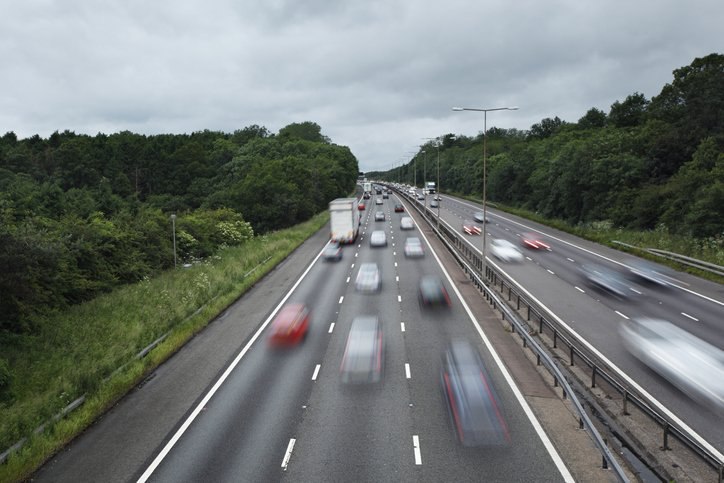The latest episode of Reality checks with Brian Reitz features Adam Ragozzino, Principal Analyst, Batteries & e-Powertrains at Omdia Batteries & e-Powertrains at Omdia
Ragozzino’s beat focuses on batteries, electric motors, related power control & conversion technologies, all-wheel-drive systems & EV transmission trends, hybrid & fuel-cell powertrains, and the impact on internal combustion engines. But his episode of Reality checks explores an adjacent topic: Autonomous vehicles.
“I always have a sneaking suspicion that sometimes the automotive industry overestimates people’s interest in certain things, and this is one of them,” Ragozzino said. “I don’t know if they got it wrong, but I am curious to hear what other people think.”
The survey
To uncover the reality, Adam Ragozzino from Omdia and the YouGov team collaborated on a five-question survey of 1,000 Americans, exploring autonomous vehicle adoption, comfort, barriers to entry, and more.
- Have you ever been a passenger in an autonomous vehicle, robotaxi, or driverless vehicle?
- How comfortable would you feel riding in a fully autonomous vehicle with no human driver?
- When do you think fully autonomous vehicles will be widely available and safe for everyday use?
- If your car could earn money autonomously, what's the minimum daily rate profit you'd accept to let it work while you sleep after accounting for costs related to insurance, cleanup, and charging?
- What concerns, if any, do you have riding in an autonomous vehicle? Please select all that apply.
America's adoption of autonomous vehicles
As of late June 2025, just 5% of Americans have experienced being a passenger in an autonomous vehicle, robotaxi, or driverless vehicle. The data reveals that while 8% of respondents know someone who has been in such a vehicle, an overwhelming 87% have neither experienced it themselves nor know anyone who has. This suggests that despite the buzz around autonomous vehicles, direct exposure to this technology remains limited among the general US population.
“Most Americans would very much underestimate how quickly this could move,” said Ragozzino. “But it’s been at least a decade since autonomous vehicles started, so I guess it isn’t moving quickly.”
Americans 4x more likely to be uncomfortable than comfortable with autonomous vehicles
Considering that 87% of Americans have never been in nor say they know anyone who has been in a self-driving car, it follows that only 17% of surveyed respondents expressed comfort with riding in an autonomous vehicle, while nearly quadruple that amount reported feeling uncomfortable (66%)
Men are more than twice as comfortable than women with the prospect of riding in a fully autonomous vehicle, with 23% of men feeling either very or somewhat comfortable compared to just 11% of women.
Younger generations, particularly Millennials and Gen Z, expressed higher comfort levels than their older counterparts, with Baby Boomers showing the highest level of discomfort at 73%
While comfort remains relatively consistent across the four census regions, differences emerge in discomfort levels, with the Midwest showing the highest discomfort (69% somewhat or very uncomfortable) and the West showing the lowest (62%).
When will autonomous vehicles be mainstream?
Despite the lack of adoption and perceived discomfort of autonomous vehicles, almost half of Americans (46%) believe self-driving cars will be widely available and safe by 2035. When disregarding the respondents who selected “not sure,” this jumps to a healthy majority.
Only 13% of Americans said they think self-driving cars will never be widely available and safe.
Would people rent out their self-driving cars?
More than two-fifths of Americans (43%) would reject the opportunity to earn money from their autonomous vehicle while sleeping, citing concerns about the associated hassle despite potential profits.
“One of [Tesla's] ideas was that having a self-driving car in everyone’s driveway... when you’re not using your own car, it would go off and rent itself out. And this would be income streams that people would be interested in. And I just don’t buy that,” said Ragozzino. “People already have that ability with platforms like Turo that you can rent your car out for ridesharing, and not everybody does that.”
Consumer expectations are high overall, with nearly one-third of all Americans (31%) demanding at least $100 per day in profit to consider leveraging their property for the service. In other words, among those open to the concept, the majority (54%) need to find a new $100 in their pocket every day they wake up.
Only 12% of respondents would accept relatively modest returns of $50 or less daily, suggesting that widespread adoption of autonomous vehicle-for-hire services may require substantial profit margins to overcome consumer reluctance.
What concerns do Americans have about autonomous vehicles?
Safety emerges as the top concern across all generations, with more than three-quarters of Americans (76%) citing it as a worry about autonomous vehicles, peaking among Baby Boomers at 80%.
Accidental mistakes by the vehicle rank as the second-highest concern at 69% nationally, with older generations again expressing greater worry than younger ones.
A notable generational divide appears around privacy concerns, where Gen Z shows significantly higher anxiety (42%) compared to Baby Boomers (16%), while Gen Z also leads in concerns about intentional vehicle mistakes at 40% versus just 25% among the oldest cohort.
The stark difference in concerns about intentional mistakes reveals a generational trust gap, with younger Americans nearly twice as likely as Baby Boomers to worry about autonomous vehicles acting maliciously on purpose. We see similar apprehension around new technologies with younger generations more likely than older Americans to say “please” and “thank you” to AI.
